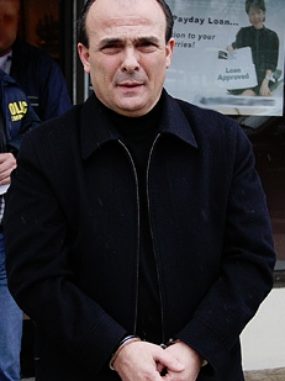
TORONTO — For a killer and alleged Mafia boss devoted to an outlaw life, Vincenzo “Jimmy” DeMaria has a strong affinity for turning to the courts to fight for his rights. The Toronto businessman, named as one of Ontario’s most influential mobsters, has won another case, this one against the Parole Board of Canada for keeping him in prison.
The Federal Court has ordered the parole board to reconsider DeMaria’s parole application at a new hearing.
DeMaria, 62, is on lifetime parole because of a second-degree murder conviction, a conditional freedom that has, periodically, been yanked when police allege he strayed too close to outlaw friends.
His 1982 murder conviction came after he shot a man during a confrontation over a $2,000 debt. At trial he said he acted in self defence but evidence showed his victim was shot seven times in the back. He was released on parole in 1992. Since then he has run a financial services business.
Authorities claim — but have not proven in court — that he progressed up the ranks of the ’Ndrangheta, the proper name of the Mafia that formed in the southern Italy region of Calabria.
DeMaria was named in court documents in Italy in 2010 as one of seven clan bosses controlling organized crime in the Greater Toronto Area.
He has denied the allegations, previously telling the National Post: “I really don’t know where these allegations came from. I’m still dumbfounded.”
His most recent arrest came on Nov. 14, 2013, when the province’s Repeat Offender Parole Enforcement Squad arrested him at his Mississauga home.
Based on “reliable and persuasive” information “provided by numerous police agencies,” the parole board found he had violated parole conditions that prohibit him from associating with anyone known to be involved in crime.
The board found he breached that condition when he attended two family weddings, one on Feb. 25, 2012, and the other on June 23, 2012; some of the guests were deemed to be mobsters. The board also heard allegations he was implicated in various criminal investigations and activities since 2001.
The board revoked his parole on June 18, 2014, declaring him an “undue risk to public safety.”
He appealed that decision to the board’s appeal division, which upheld it, and then appealed to the Federal Court of Canada.
DeMaria complained he was not given details of the allegations made against him by police; that he was refused a third postponement of his hearing; and his request for an oral hearing was denied.
Judge Catherine Kane agreed the board was not procedurally fair to DeMaria when it denied him an oral hearing to respond to the police allegations and to address the credibility findings against him.
A new parole hearing will be scheduled.
DeMaria has had several judicial wins over the years in lawsuits and legal complaints over his treatment. His appeals and suits are usually well funded and often backed by multiple lawyers and private investigation firms.
The previous occasion he was arrested for alleged parole breaches, in 2013, the board later dismissed the police allegations and he then sued the Correctional Service of Canada, seeking $350,000 in compensation. The suit, filed in 2011, has not yet been decided.
Even while he was imprisoned on his original murder charge, DeMaria twice fought cases that helped change prison practices.
He filed a suit after he was transferred back to a maximum-security prison in the 1980s based on a suspicion he smuggled cyanide into prison. When he faced no discipline or charge and no cyanide was ever found, he took the warden to court and won a transfer back to medium-security.
Another time he was transferred back to maximum-security after he telephoned a Liberal MP to complain about prison conditions. He again took the prison to court and forced a reversal of his transfer and a judicial rebuke against the warden.
Although this most recent court victory allows him another hearing to press his case for freedom, it was not a ruling that cleared up concerns over what danger DeMaria poses.
“Rather, it focuses only on the duty of procedural fairness owed by the board to Mr. DeMaria in the board’s decision-making process,” Kane said in her ruling.
Michael Mandelcorn, a Kingston lawyer who argued the case on DeMaria’s behalf, said he could not discuss the decision until he has spoken to his client.
By: ADRIAN HUMPHREYS





Be the first to comment